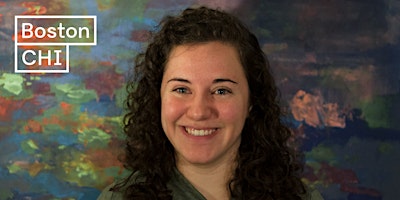The next BostonCHI meeting is Coding On-the-Fly: Needs and Support on Tue, Nov 9 at 6:45 PM.
Abstract:
The need for and use of programming across domains continues to expand. Users ranging from children to experienced programmers learn on-the-fly as they code. While their goals may necessitate coding, their focus is often not on learning to code as a skill in and of itself. For example, many children think of coding as a way to create something, such as an animation or a game. A programmer may need to build a component for their project, and along the way they need to learn a new API. A marketing professional may want to automate their workflow, but doesn’t have time to learn to program formally. My work has aimed to understand and support programmers who need to learn or expand their skills on-the-fly, without formal learning like tutorials or assignments. By considering the way people process code and other complex information using theories like Cognitive Load Theory, we can better understand users’ needs and design systems that support users in accomplishing their tasks and learning along the way.
Bio:
Michelle Brachman (formerly Ichinco) is an HCI research scientist in the AI Experience group at IBM Research in Cambridge, MA. She was previously an Assistant Professor of Computer Science at UMass Lowell and received her PhD from Washington University in St. Louis after getting her start in HCI at Tufts. Her research has roots in understanding and designing systems to support novice and end-user programmers. She now ties this to her current explorations of human-AI collaboration. You can find her papers in venues like ACM CHI and IUI and she has won two best paper awards at the IEEE Conference on Visual Languages and Human-Centric Computing.
Schedule – EST (UTC-5)
6:45 – 7:00: Networking (in Zoom)
7:00 – 8:00: Presentation
8:00 – 8:30: Q & A


